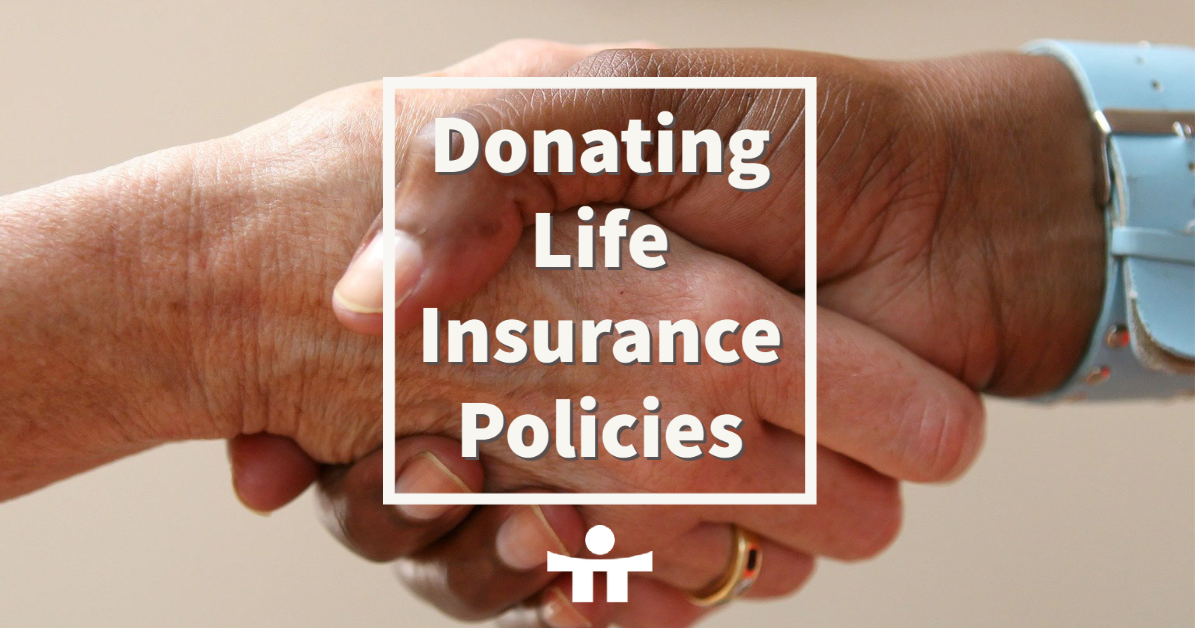Donating Life Insurance Policies
For many individuals there comes a time when life insurance is no longer needed. Whether it be a spouse has passed away, your children are grown, or you simply have the wealth to cover any unexpected expenses. A common route is to cancel life insurance and take the cash surrender value. This may be the solution for some individuals, but many policy owners may be interested in keeping the coverage in force and gifting the life insurance to a charity. Upon their death they could leave a lasting legacy in their community and receive a potentially substantial tax break.
What You Need to Know
How to Donate a Policy
Method 1: Charity as a Beneficiary
The most common way to donate a policy to charity is to simply name the charity as the beneficiary of the life insurance policy. The insured would simply assign the charity as the beneficiary, and upon their death the charity would receive a tax-free lump sum payout. The insureds estate would then receive a tax credit based on the amount of the gift.
Method 2: Charity as Policy Owner & Beneficiary
Another option is to have the charity of your choice agree to take over ownership of the policy and become the beneficiary. Similar to the previous method, the charity would still receive the tax- free payout upon the insured death, avoiding probate. The difference between this method and the previous method is that the insured would receive a tax credit immediately. If the insured continues to pay the premium, they will receive additional tax credits as well.
This method comes with more considerations then simply naming the charity as the beneficiary. The first and most important consideration is whether or not the charity is willing to take on ownership. If the insured does not plan to pay the policy premiums anymore it is possible charity may not be able to take over the premium payments. It may be an extended process to find a donor who would be able and willing to take on such a commitment. One solution to this problem may be to donate a policy that is functioning has gone paid up. Paid up policies allow their cash value to pay the premiums, eliminating the need for payor. Another consideration is the possibility that the charity will no longer be operating at the time of the insured’s death. Both of these matters would require extensive planning to avoid.
Lastly, since the tax credit would be granted while the donor is alive, it is important to ensure that the entire tax credit can be used. Living taxpayers are only eligible for a tax credit that is worth 75% of their income for the year and can only be carried forward up to 5 years. It is not unlikely that the FMV of the life insurance policy would be more than the insureds yearly income, causing a portion of the tax benefits to be lost.
Case Study
Mary is a 71-year-old widow. All of her children are grown and independent. Mary lives very comfortably on her retirement savings and her husband’s life insurance proceeds. Many years ago, Mary purchased a whole life participating life insurance policy for herself in the event she was to die before her husband. She has recently realized that she no longer needs the coverage, as she has sufficient savings to settle her estate and leave an inheritance to her children. Mary does not want to cancel the policy as it has grown substantially over the years.
Mary’s insurance advisor recommends that she donate the life insurance to a charity. Her advisor explains that if she makes a charity her beneficiary then the charity will receive the life insurance benefit upon her death and her estate will receive a tax credit for an amount equal to the FMV of the donated policy.
This option sounds very appealing to Mary, as she is an active volunteer in her community and she understands the good her donation could do. Her advisor refers her to an actuary and underwriter, who evaluate her policy to have a FMV of $250,000.
By choosing this option, Mary was able to give a substantial gift to the charity of her choice and was able to reduce her taxes upon her death in her estate, leaving more money for her family.
The Bottom Line
Make sure you talk to your advisor about all of your options before cancelling your life insurance policies. Donating a policy is a little known or talked about option, but it may the perfect solution for some people. Your advisor can help you find the resources necessary to make transactions such as this as successful and beneficial as possible.
Click HERE to book an appointment with us today!
